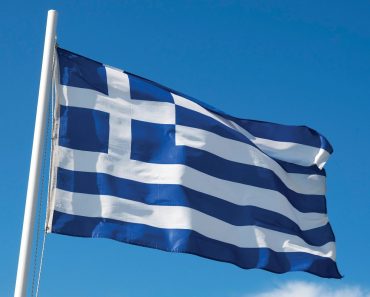Greek hotels, especially in the four and five-star categories, are gradually entering a sustainable approach to hospitality, making investments in sustainability actions that total 200 million euros and represent 19% of all investments by Greek hotels in 2024 (over 1 billion euros).
This is the result of a study by the Institute of Tourism Research and Forecasting (ITEP) “ESG – Sustainability of the Hotel Sector”, which was presented by the General Director of ITEP, Dr. Georgios Petrakos, during the Conference “Paving the Way for a Sustainable Tomorrow”, held on May 27 in Rhodes, co-organized by the Hellenic Chamber of Hotels (HCH) and the South Aegean Region.
The survey, which was carried out from August 7 to September 21, 2024, in all hotel units in the country, showed that the highest amounts of investment in sustainability actions come from the category of four-star hotels (78 million euros) followed by five-star hotels (30 million euros). This fact is particularly encouraging for the progress of the transition of Greek hospitality to a more sustainable model, as four- and five-star hotels constitute 27% of the total hotel capacity and 54% of hotel rooms.
40% of hotels implement sustainability actions focused on environmental protection, 29.1% are oriented towards the promotion and preservation of the cultural heritage of the region, and 10.3% towards the preservation of ecosystems and biodiversity.
In terms of managing energy sustainably, the number of Greek hotels using a central building management system (BMS) has increased to 9.9% compared to 6.3% in 2023. Their main energy infrastructures are energy-efficient windows (54.4%), energy-efficient glazing (50.2%), awnings and sunshades (48.7%), thermal insulation of walls and roofs (36.2%), electric vehicle charging stations (15.7%), and the use of electric vehicles (13.6%).
21% have a system for recording and monitoring energy consumption (64% in five-star and 36% in four-star) while 73% have targets for its reduction, compared to 67% in 2023.
Greek hotels, strengthening the social dimension of sustainability, use products from local certified producers (53.7%), seasonal food and beverages (51.5%), recyclable – biodegradable products and packaging (43.9%), environmentally friendly cleaning/chemicals (43%) and certified environmentally friendly suppliers (40.5%).
Regarding information and awareness of visitors:
- 49.5% of hotels have an Energy Performance Certificate (EPC), and 13.4% have Certification in the fields of Environment, Energy, or Sustainability.
- 25.7% implement Corporate Social Responsibility actions related to the environment and the local community, especially five-star (57%) and four-star hotels (41.3%).
- The percentage of hotels that inform customers about reducing the carbon footprint of their vacations is 30%, compared to 20% in the corresponding ITEP survey in 2023.
- 46% of hotels implement training and awareness programs for their employees on recycling, 34.7% on water management, 34% on energy management, 23% on local culture and tradition, and 11% on ecology/biodiversity.
Regarding waste management, Greek hotels are reducing the use of materials such as paper (39.6%), plastic (39.4%), batteries (29.5%), and glass (28.6%) and recycling these materials at higher rates.
20% of hotels with restaurants have a system for measuring and monitoring Food Waste, of which 55% correspond to five-star hotels and 28% to four-star ones. At the same time, 65.4% implement practices to minimize kitchen waste by feeding staff, 22.4% by providing free meals to individuals and organizations in need, and 11.3% by composting.
With the South Aegean, Crete and the Ionian Islands being “in the red” in terms of hydrological risk, the most widespread actions of Greek hotels in saving water are the reuse of towels (53.7%), reduced water consumption cisterns (53%), informational signs regarding water saving in the hotel (49.1%), the reuse of bed linen (44.4%), automatic systems for controlled watering (34%) and the installation of reducers/sensors in the water flow in taps, showers etc. (32.2%).
Of the 45.6% of hotels in Greece that have a swimming pool, 60.8% focus on reducing leaks, and approximately 6% use seawater.
RELATED TOPICS: Greece, Greek tourism news, Tourism in Greece, Greek islands, Hotels in Greece, Travel to Greece, Greek destinations, Greek travel market, Greek tourism statistics, Greek tourism report






